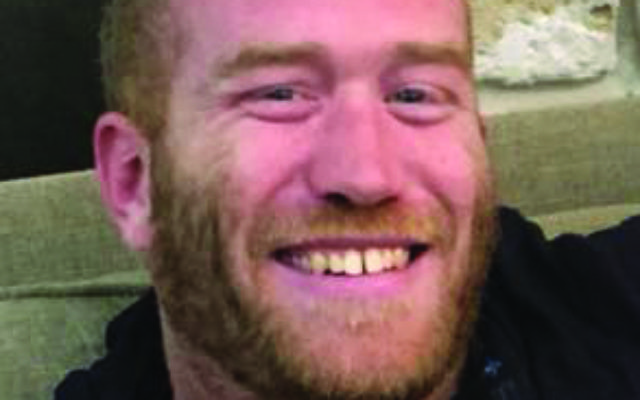HAMSA: A Jewish Response to the Heroin Crisis
By Adam Abramowitz
We have seen a lot lately about the nation’s growing heroin epidemic. The rate of deadly heroin overdoses quadrupled from 2002 to 2013, according to the Centers for Disease Control and Prevention. Heroin-related suicides and overdoses are one of the leading causes of death in our country, killing more people than car accidents.
The demographics have changed the past 15 years. In 2000, black Americans ages 45 to 64 had the highest death rate from heroin overdoses. Now, white people ages 18 to 44 have the highest death rate from overdose and suicide. According to the CDC, heroin is hitting young adults more than any other age group, leaving non-Hispanic white males ages 18 to 25 at highest risk for addiction.
If you think this doesn’t apply to the Jewish community, you are wrong. Forget the old myth that Jews don’t become addicts. Meet Adam Abramowitz. He is just one among the many.
I am no different than any other drug addict or alcoholic. I’ve spent days, months, years powerless over my desire to drink and drug.
“What’s the point of living if I can’t feel happy or high all the time?”
The last time I had that thought, I was lying in my room, detoxing from heroin.
Three years ago, I shuddered atop my bed as my body began to deteriorate. I had resorted to slamming my fist into my skull. The physical blows and ringing in my ears distracted my mind from the toil of withdrawal.
The pressure of pain provided by the removal of substances thrust me into a state of delirium, and by the third day of my detox I began to look for a way out.
Lying there, daylight creeping in through window blinds, I considered ending my life. The thought of instantly allowing myself to feel nothing eased my pain. I wanted a quick release, an end to my suffering. The fear of releasing myself from living caused my mind to search for hope.
A purpose for my pain began to develop, and I stayed stoic in my fight for a new freedom. I held on to a past experience of living without the crutch of drugs and alcohol as I clenched my teeth and gripped my bedsheets.
I knew the removal of heroin from my system would spark a new outlook on life, a new sense of purpose and a reason to live. I would fight through the pain of now. Eventually, I knew I would be able to wake up and not need anything to feel OK.
I’ve been sober ever since.
Sharing my experiences has tapped me into a new passion for life. I write every day and have drafted a manuscript of my own journey since recovering. It’s documentation of what life is like for a person who has recovered from heroin and is now pursuing a dream: to become a published author.
The process of recovery has aimed a magnifying glass at the voice in my head — a voice that wants to live a life of creativity. I’ve been given the tools and the mind-set to see my dreams unfold in front of me as I pursue what I believe in and what I feel.
Since recovering, I have led two sober Birthright trips to Israel. The vision that got me through my detox, the hope that I would find purpose for my pain, has manifested.
Through Jewish Family & Career Services’ HAMSA program, I have been provided unique opportunities to connect with other Jewish addicts and alcoholics. In a 12-step world of recovery that revolves around the idea of G-d, it is liberating to be involved with a sober community based around our culture and our religious heritage.
HAMSA (Helping Atlantans Manage Substance Abuse) has a full-time, dedicated substance abuse counselor and a team of support staff providing educational and outreach programming to help people like myself.
As I live and breathe, I have discovered the only thing that truly matters is transparent honesty. If we can be honest with ourselves and vocal about how we feel, the world will show up to help.
Adam Abramowitz is a clinical technician and counselor at Ridgeview Institute, a mental health and addiction treatment center in Smyrna. JF&CS’ HAMSA offers counseling and support services and special programs for those in recovery and their loved ones. HAMSA counselors provide education and prevention programming at middle schools and high schools. For more information, visit ytfl.org/HAMSA.





comments